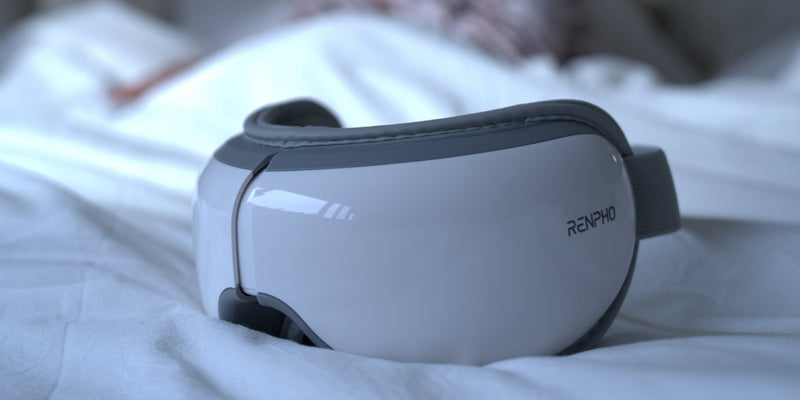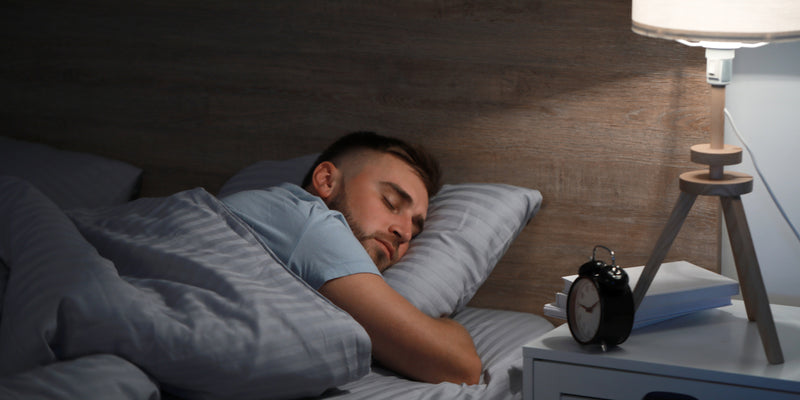Migraines can be one of the most debilitating health issues to deal with. The intense headaches, nausea, and sensitivity to light and sound make it difficult to function during an attack. For those who experience chronic migraines, the disruption to your daily life and overall wellbeing can be devastating.
However, you don't have to suffer in silence. There are proven strategies you can use to better manage and prevent migraine attacks. From dietary changes to stress management and beyond, you'll learn holistic approaches to keep migraine symptoms at bay. With the right plan in place, you can take back control of your health and reclaim the life you deserve - no more missing out on work, family time, or the activities you love.
What Is a Migraine Attack?

A migraine attack is a neurological condition that is characterized by severe, recurring headaches, usually accompanied by other symptoms such as nausea, vomiting, and sensitivity to light and sound.
During a migraine attack, individuals often experience a throbbing or pulsating pain on one side of their head, which can last for hours or even days. These attacks can be debilitating, causing significant disruption to daily activities and quality of life. In addition to the headache, migraines can also manifest with symptoms such as visual disturbances (known as auras), dizziness, fatigue, and difficulty concentrating.
What Triggers Migraine Attacks?
Migraine attacks can be triggered by a variety of factors. One significant factor is genetics and family history. People with a family history of migraines are more likely to experience them themselves. Additionally, individuals who have experienced abuse, depression, or anxiety may be more susceptible to migraine attacks due to their impact on the nervous system.
Lifestyle factors can also play a role in triggering migraines. Obesity and missing meals can disrupt blood sugar levels and lead to migraines. Certain foods, such as aged cheese, chocolate, and foods with high levels of tyramine, can trigger migraines in some individuals. Disrupted sleep patterns, whether due to insufficient sleep or irregular sleep schedules, can also contribute to migraines.
Environmental factors can also trigger migraines. Weather changes, such as sudden drops in barometric pressure or intense heat, can lead to migraines. Hormonal changes, particularly in women during menstruation or menopause, can also trigger migraines. Excessive screen use, exposure to bright lights, loud noises, and strong smells can all be migraine triggers.
Finally, emotional factors can play a role in triggering migraines. Stress and strong emotions, such as anger, frustration, or sadness, can lead to migraines in some individuals.
Why Is It Important to Manage Migraine Attacks?
Managing migraine attacks is of utmost importance for various reasons. Firstly, prevention is crucial in managing migraines. By identifying triggers and making necessary lifestyle changes, individuals can significantly reduce the frequency and severity of migraine attacks. This can prevent the disruption of daily life and provide a sense of control and empowerment over the condition.
Taking early action is also key in managing migraines. Recognizing the early signs and symptoms allows individuals to take medication or implement relaxation techniques promptly, potentially preventing the migraine from progressing into a full-blown attack. Early intervention can greatly reduce the duration and intensity of migraines, minimizing the impact on daily activities and overall quality of life.
Another essential aspect of managing migraines is finding effective symptom relief. Migraines often cause excruciating pain, nausea, sensitivity to light and sound, and other debilitating symptoms. Managing these symptoms promptly and effectively can alleviate distress, improve productivity, and enhance overall well-being.
The impact of migraines on daily life is significant. These attacks can lead to missed work or school days, reduced productivity, and strained relationships. The unpredictable nature of migraines can also cause heightened anxiety and a constant fear of attacks. Therefore, having effective management strategies in place is crucial to minimize the impact on various aspects of life and allow individuals to maintain a sense of normalcy.
7 Proven Strategies for Managing Migraine Attacks

There are several proven strategies for managing migraine attacks. These strategies include a combination of preventive measures, lifestyle changes, medication options, and alternative therapies. Here are seven strategies that have been proven effective in managing migraines.
- Avoiding Triggers: Identify and avoid triggers that can bring on a migraine attack. Common triggers include stress, certain foods, hormonal changes, loud noises, and bright lights. Keeping a migraine journal can help identify triggers and avoid them.
- Getting Enough Sleep: Establish a regular sleep schedule and ensure you are getting enough sleep each night. Lack of sleep can often trigger migraines, so it is important to prioritize good sleep hygiene.
- Maintaining a Healthy Weight: Obesity has been linked to an increased prevalence and severity of migraines. Maintaining a healthy weight through diet and exercise can help reduce the frequency and intensity of migraine attacks.
- Taking Preventive Medicine: If migraines are frequent or severe, preventive medication may be necessary. These medications are taken daily to reduce the frequency, duration, and intensity of migraines.
- Considering Onabotulinum Toxin A Injections: Onabotulinum toxin A injections have been approved by the FDA as a preventive treatment for chronic migraines. These injections are administered every 12 weeks and have been shown to significantly reduce the number of migraine days.
- Relaxation Techniques: Practice relaxation techniques such as deep breathing, meditation, and yoga. These techniques can help manage stress, which is a common trigger for migraines.
- Alternative Therapies: Explore alternative therapies such as acupuncture, biofeedback, and herbal supplements. While more research is needed to fully understand their effectiveness, some individuals find relief from migraines through these therapies.
When Should You See a Doctor for Migraine Attacks?

Migraine attacks can often be debilitating and impact an individual's daily life. It is essential to recognize the symptoms of migraines and know when to seek medical attention. Common symptoms include severe headache, which is often described as pulsating or throbbing, sensitivity to light and sound, nausea, and vomiting. Some individuals may also experience visual disturbances, such as flashing lights or blind spots, known as aura.
While many people can manage their migraines with over-the-counter medications, it is crucial to seek medical attention if the symptoms become severe or if they are accompanied by certain warning signs. These warning signs include sudden, intense pain that is unlike any previous migraine, changes in vision or balance, confusion, or difficulty speaking.
Intense migraine pain can be associated with potential risks that require emergency treatment. In extremely rare cases, severe migraines can lead to stroke-like symptoms, known as a hemiplegic migraine. Rapid treatment is necessary if there is sudden weakness or numbness on one side of the body, difficulty speaking, or other signs of a stroke.
Diagnosing migraines can be challenging as no specific test can confirm their presence. However, doctors rely on a combination of medical history, physical examination, and ruling out other conditions. Keeping a migraine diary is crucial as it helps track and identify triggers, patterns, and effectiveness of treatments. This diary can also aid in diagnosing migraines by providing valuable information to healthcare professionals.
Can You Avoid Migraine Attacks?

Migraine attacks can be debilitating, causing severe headaches, nausea, and sensitivity to light and sound. While they cannot always be completely avoided, there are strategies and methods that can help minimize the frequency and intensity of these attacks.
Identifying triggers is a crucial step in avoiding migraine attacks. Triggers can vary from person to person and may include certain foods, beverages, or environmental factors such as bright lights or strong smells. By keeping a diary of symptoms and possible triggers, individuals can identify patterns and avoid or minimize exposure to these triggers.
Maintaining a healthy lifestyle can also play a significant role in preventing migraine attacks. Regular exercise, getting enough sleep, and managing stress levels can reduce the likelihood of attacks. Additionally, practicing relaxation techniques such as deep breathing or meditation can help manage stress and potentially prevent migraines.
For some individuals, preventive medicines or alternative devices may be necessary. Talk to a healthcare professional about medication options that can help reduce the frequency and severity of migraines. Alternative devices such as headband devices or acupuncture have shown promise in some individuals.
Takeaway
Migraines can be a debilitating condition, but there are proven strategies to better manage and prevent these attacks. By identifying and avoiding triggers, maintaining healthy lifestyle habits, and exploring both conventional and alternative treatments, individuals can take control of their migraines and reclaim their quality of life.
While migraines cannot always be completely avoided, the key is to be proactive in managing them. Keeping a migraine journal, working closely with healthcare providers, and implementing a comprehensive treatment plan can significantly reduce the frequency and severity of attacks. With the right approach, those suffering from migraines can minimize the disruption to their daily activities and live fuller, more productive lives. The path to managing migraines may require trial and error, but the opportunity to find effective relief and regain control over one's health makes it a worthwhile pursuit.
Renpho Health Tips
-

5 Tips and Tricks to Start Lucid Dreaming Tonight
April 23, 2024
Read more >
-

Optimizing Productivity: How Long Should a Power Nap Be for Maximum Effectiveness?
April 16, 2024
Read more >
-

Embrace the Season: Discover the Magic of Autumn Essential Oils
April 8, 2024
Read more >
-

Unveiling the Relief: Eye Massagers as a Headache Healer
March 21, 2024
Read more >
-

The Connection Between Massage Guns and Better Sleep
May 23, 2023
Read more >
